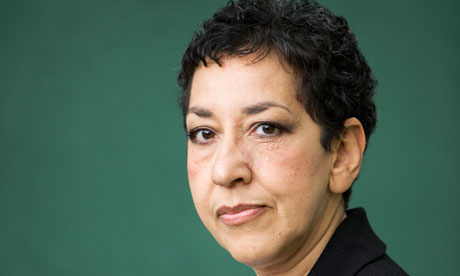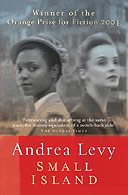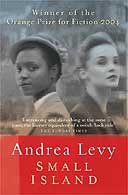The opening sentence of the back-cover blurb for the paperback edition of Andrea Levy's Small Island is misleading: "It is 1948, and England is recovering from a war." Though, after a brief prologue, the novel does indeed open in 1948, in London, and ends only a few weeks later, most of the book in fact describes what has happened to its main characters before this time. The first sentence of the first chapter epitomises the narrative's gravitational pull: "It brought it all back to me." This is Hortense, newly arrived in London from Jamaica, standing at the front door of the shabby lodging house in Earls Court where her husband, Gilbert, is staying. Seeing the big front door and the bell push (which does not work), she remembers her boastful friend Celia, back in Jamaica: "Hortense, in England I will have a big house with a bell at the front door and I will ring the bell." Celia, of course, does not quite understand what a doorbell is for.
In 1948, in a grim London winter, Hortense and Gilbert meet up again, a husband and wife whose marriage has been arranged only to secure Hortense's passage to England. The novel's other two main characters are their English landlady, Queenie, and Bernard, Queenie's bigoted husband, who arrives back from wartime service to find "coons" renting rooms in his house. The conflicts between these four are the stuff of the novel – conflicts as much within the two marriages as between the Jamaican and the English characters. But the drama of the moment is shaped by the past, so the narrative keeps withdrawing to earlier times. The story is told entirely by these four characters: in sections headed "1948" they take turns to narrate, but these alternate with much longer narrative sections labelled simply "Before", in which we get what we have come to call the "back story" of each of the four.
The earliest use of the term "back story" is recorded by the OED as recently as 1982. The dictionary defines it as "a history or background story . . . created for a fictional character", before adding "esp. in a film or television series". A "back story" is indeed a narrative device with which we are most familiar from film or TV drama, and the ease of its use in Levy's novel owes something to these media. What is distinctive in a novel is the use of first-person narration. Every chapter of Small Island has the name of its narrator at its head. In voices that Levy tries carefully to distinguish, each explains him- or herself. Whereas the "1948" sections contain several voices, each section headed "Before" belongs to just one narrator. Each demands that we attend just to his or her version of events.
Once this elaborate structure – both multiple narrators and a back-and-forth movement in time – might have seemed disconcerting, but the huge popularity of Small Island suggests that readers have found it no special challenge. Perhaps the narrative tricks of film and TV have made us more receptive to such formal complexities. The most important effect of the use of back stories is the shifting of a reader's sympathies. So, for instance, Hortense's initially condescending view of Gilbert seems peculiarly foolish when we read of his wartime experiences as an RAF driver in England, stoically encountering the ordinary racism of British civilians and, especially, American servicemen. Queenie's apparent small-mindedness seems less evident when we find out, from her own account, of her affair with a black serviceman who is staying in her house while her husband is serving in the army in India.
And finally, two-thirds of the way through this long novel, Bernard, a sour, angry presence until this moment, gets his back story too. This comes as a shock, for we have not heard his voice before at all. The "1948" sections are shared between Hortense, Gilbert and Queenie. Bernard has no claim upon the narrative's present – and, at its climax, he finds he has no part to play in the decisions that have to be made by the other three. But he does have a past: the traumatic story of his wartime service on the India-Burma border. It does something to explain the twisted person whom Hortense, Gilbert and Queenie see.
The back stories are not just about widening our sympathies and chastening our judgments. They shape the plot by giving the reader knowledge that some of the characters never obtain. Why does Bernard disappear for two years after the war? Who is the father of the child born in the novel's final chapters? By providing their own back stories, the characters answer such questions – but to the reader, not to each other. Crucially, we find out that Hortense and Queenie have both loved the same man – but neither of them ever realises it. In a novel about the barriers of racial prejudice, where mutual incomprehension seems the rule, the narrative method is appropriate. It allows us to see just how unknown these characters are to each other.
John Mullan is professor of English at University College London. Join him and Andrea Levy for a discussion on Monday 24 January at 7pm, Hall One, Kings Place, 90 York Way, London N1 9AG. Tickets: £9.50 online at kingsplace.co.uk or £11.50 from the box office: 020 7520 1490.









